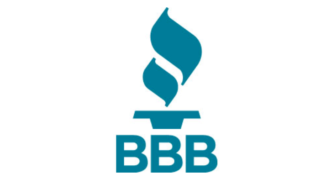During the transition from high school to college many students and parents are faced with tuition payments, financial aid and scholarship applications, and often have to purchase a new laptop or tablet. These are all things that could lead to being scammed if not careful.
 According to the BBB Institute for Marketplace Trust, consumers ages 18 to 24 are three times more likely than seniors to fall victim to a scam. According to 2018’s BBB’s ScamTracker Risk Report, 41.6% of students reported a loss when exposed to a scam as compared to 28.3% of non-students.
According to the BBB Institute for Marketplace Trust, consumers ages 18 to 24 are three times more likely than seniors to fall victim to a scam. According to 2018’s BBB’s ScamTracker Risk Report, 41.6% of students reported a loss when exposed to a scam as compared to 28.3% of non-students.
With college students being the primary target for scams, Better Business Bureau Serving Connecticut (BBB) has some useful tips and warnings for college students and their families:
—Fake Credit Cards — It’s not a secret that deals which appear to be a quick and easy way to spend money are offered to college students to get them to apply for their first credit card. On top of the fact that this could potentially stir up a credit problem, some of the deals could be a fake gimmick to get access to student’s personal information. Do your research on those credit card flyers, emails, promotions and mailers before applying. Read our BBB Tip on credit card scams.
—Too Good to be True Apartments — It’s hard to not jump on a convenient apartment so close to campus, especially if it advertises affordable rent. It’s tempting to hand over credit card information online to lock in a great spot, but it’s always worth seeing the apartment in person prior to a money transfer. This also applies to Craigslist listings of other students looking for roommates.
—Safe Credit Reports — After the age of 18, it’s a good idea to start becoming more aware of your credit score and start adapting some healthy money habits. It’s also a helpful signifier of any unusual activity and possible ID fraud. While there are multiple traps online trying to snag your social security number with a fake credit score scam, safely check your credit score at annualcreditreport.com.
—Scholarship and Grant Scams — Phone calls from companies guaranteeing they can help reduce loan payments or set you up with a hefty grant are worth researching. Even searching the company online could bring up scam alerts from other victims. Contact the school’s financial aid office for advice on the company’s legitimacy or how they can help otherwise. Scholarship scams can affect college students even after graduation; read our tips on scholarship scams.
—Employment Scams — In 2018, employment scams were the #1 culprit for scams attacking 18-25 year olds. Job offerings can be sent directly to school emails, promising flexible hours and a beyond expected pay. There is no need to send a Social Security number electronically without knowing exactly who you are sending it to. For more types of employment scams, visit BBB’s Tips: Employment Scams.
—Awareness of Current Scams — As tech savvy as current college students can be, a surprising number of scams reported to BBB’s ScamTracker are from students who learned their lesson too late. Use BBB’s ScamTracker to learn of the latest scam trends and read local reports of specific incidents.

